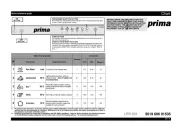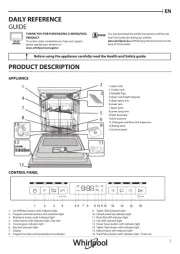Bauknecht GSF 7293 TW-WS Manual
Læs gratis den danske manual til Bauknecht GSF 7293 TW-WS (4 sider) i kategorien Opvaskemaskiner. Denne vejledning er vurderet som hjælpsom af 10 personer og har en gennemsnitlig bedømmelse på 4.7 stjerner ud af 5.5 anmeldelser.
Har du et spørgsmål om Bauknecht GSF 7293 TW-WS, eller vil du spørge andre brugere om produktet?

Produkt Specifikationer
| Mærke: | Bauknecht |
| Kategori: | Opvaskemaskiner |
| Model: | GSF 7293 TW-WS |
Har du brug for hjælp?
Hvis du har brug for hjælp til Bauknecht GSF 7293 TW-WS stil et spørgsmål nedenfor, og andre brugere vil svare dig
Opvaskemaskiner Bauknecht Manualer










Opvaskemaskiner Manualer
- Freggia
- Knau
- Atag
- Asko
- Frigidaire
- BEKO
- Nordmende
- Cylinda
- Boretti
- ECG
- Viva
- Scholtès
- DeLonghi
- Flavel
- Caple
Nyeste Opvaskemaskiner Manualer









